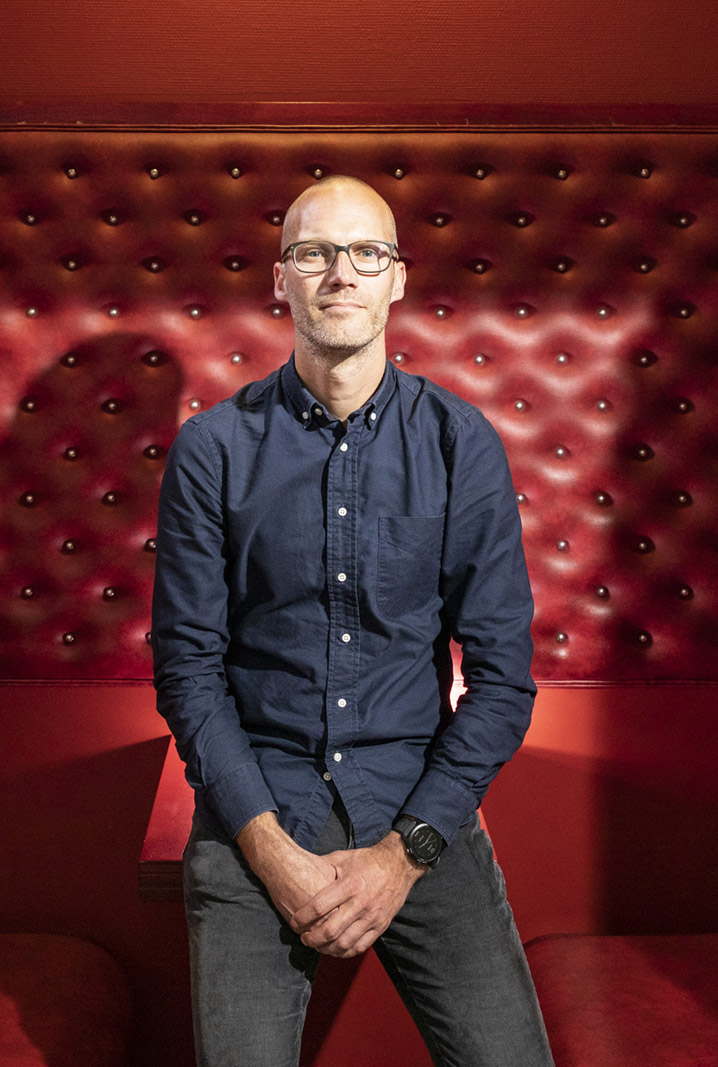Everyone’s a eurosceptic
The European Union is often criticised for being a ‘show’, far removed from its citizens. The Brussels machinery is widely seen as boring, bureaucratic and complex. “However in reality, in many things the EU is more transparent than a lot of its Member States”, says political scientist Patrick Bijsmans. He welcomes criticism, though. Whether you used to be for or against Europe, now I think everyone is a Eurosceptic in the true sense of the word—they don’t automatically assume that something is good, and that’s okay.”
Seven UM scientists shed light on the European state of affairs as part of our series Maastricht, reflecting on Europe.
What is the importance of a united Europe in 2019?
“Europe has now become a real part of our lives. Most problems don’t stop at the border; take, for instance, air pollution or migration. The British idea or that of Thiery Baudet to leave Europe and sort it out for yourself is not a reality any more. Everything is so intertwined, even outside Europe. The British are going to have to enter into new treaties with all those countries they now have a treaty with through Europe, and they think things will remain the same. Japan has already said, ‘That’s not on the cards.’ That means they’ll be negotiating from a much more vulnerable position.”
What is the most frequently heard criticism of Europe?
“The standard criticism is that Europe is a ‘show’ that is far removed from its citizens, boring and complicated - in reality, though in many things Europe is more transparent than a lot of its Member States. Europe can only go on living if you debate about it, but if the debate is limited to for or against, we won’t get anywhere politically and we'll never understand it. Then you just end up either for it or against it. You often see that reflected in the media debate, certainly during the European elections. And the media are not really making much effort to unravel that complexity. Europe is much more effective than most people think. Consensus building is common in Europe, because hard political play can put countries off. That may seem sluggish, but you’re being asked to make policy for 500 million Europeans, and these European rules also have to take into account the national interests of all Member States; that takes time.

Patrick Bijsmans, political scientist (with a special focus on Europe in the media and Euroscepticism) and assistant professor

And yet, if a Nexit referendum were to be held in the Netherlands today, 86% of the Dutch would want to stay in the EU. This percentage has increased thanks to Brexit; people see that it might not be such a good option. But all critics are tarred with the same brush, so if you’re a Eurosceptic, you’re against Europe, even if the criticism is focused on policy choices. Many Eurosceptics are sceptical in the true sense of the word—they don’t automatically assume that something is good, and that’s okay. Whether you used to be for or against Europe, now I think everyone is a Eurosceptic in the true sense of the word.”
What needs to change?
Not just the media but also our national politicians need to be much more transparent about what Europe is doing—not just say ‘Brussels decides’ when something is inconvenient to them. That’s not true; it’s our ministers who share in the decision-making process, not some bureaucrat or other from the European Commission. Media research over the years shows that Europe is slowly attracting more attention, but there is room for improvement. An interesting study was conducted among journalists working in Brussels, which showed that they’ve sometimes had trouble pitching their articles to their editors at home because they didn’t fully understand the story. Here, too, you really need to keep in mind the link between the national and European levels. If the media and politicians were to give a bit more insight beforehand into what’s being decided in Brussels and what that might mean for ‘us’, the idea that decisions are being taken away from ‘us’ wouldn’t be so popular.”
How do you see the future of the EU?
“Europe needs to start thinking about social policies that go hand in hand with economic integration. Europe has for a long time been all about ever-closer economic integration without really considering how that affects the average European worker. Take, for example, Polish truck drivers driving around in Dutch trucks, the discussion about labour migration, the discussion about equal pay for equal work, and for Eastern European workers. From an Eastern European perspective, it may be positive as it is now, but from a Western European perspective, it’s another matter. The Polish plumber has been a kind of scapegoat, rightly or wrongly.
And Europe needs to start thinking about the migration issue, and not just about who is or is not entitled to asylum. The disappearance of internal borders means we need to take a good look at the external borders and review the policy accordingly. If you arrive in Italy, you have to apply for asylum there and the Netherlands, and other countries, are not affected. Then I can understand why you would vote for a party like Lega, which just wants to close the borders. We need to think seriously about that. The answer to these kinds of issues can't be found at national level; it has to be done at European level. Perhaps as the EU you may just be marking time at this point, not thinking about further integration, but looking to see if and where a revision of existing policy is needed.”
What do you think of the election results?
“That the big centre parties would incur losses was to be expected, as it was that the Eurosceptic parties would make gains. But these parties are more diverse than people think; there’s more to them than just being against Europe. And in any case, the Eurosceptic surge wasn’t that massive: in countries like the Netherlands they performed worse than expected. The results show that for or against aren’t the only options in the European debate. I think a more diverse parliament is positive for democratic debate.”
Also read
-

Frederik Claasen, the head of policy at our partner organisation Solidaridad Network on the opportunities and obstacles facing smallholder farmers in their data ecosystems.
-
After several rocky years, Maastricht University alum Lea Vink has found her feet in Vienna. Professionally, she is taking new steps at the crossroads of aviation and organisational psychology. And on a personal level, luck has smiled on her since her transition from man to woman.
-
Computers are already capable of making independent decisions in familiar situations. But can they also apply knowledge to new facts? Mark Winands, the new professor of Machine Reasoning at the Department of Advanced Computing Sciences, develops computer programs that behave as rational agents.

